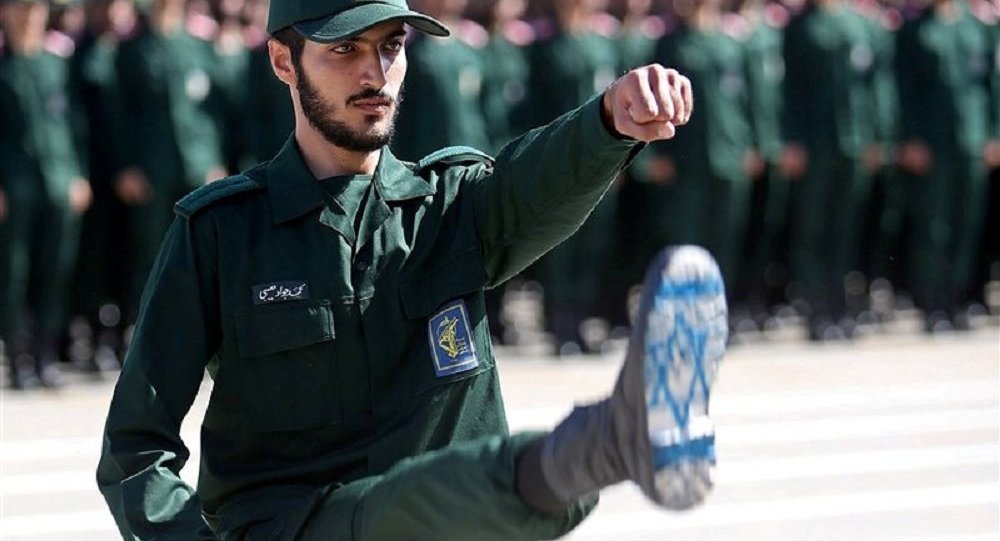FRESH AIR
Australia and the IRGC: is a ban necessary?
April 9, 2019 | Naomi Levin

In Australia, the Islamic Revolutionary Guard Corps (IRGC) is not designated a terrorist entity, but Australians would be wise to avoid having anything to do with the Iranian military, its officers and its business offshoots.
Following US President Donald Trump’s announcement that the US would list the IRGC as a terrorist organisation, it is worth considering Australia’s approach in this area.
Australia does not designate the IRGC as a terrorist organisation. However, similar to the US approach prior to April 8 2019, the Australian Government has sanctioned many IRGC-related entities.
Worryingly though, many of the Iranian entities and individuals on Australia’s sanctions list were designated in 2011, so while the list appears lengthy, a case could certainly be made for it to be updated. This is especially important in light of events in the Middle East in the past eight years, including the Syrian civil war, the burgeoning Iran-Iraq relationship and the rise of Hezbollah – all heavily influenced by IRGC support and personnel.
As detailed in this extensive primer, prior to Trump’s recent announcement, the US already had more than 900 Iran-related individuals and entities sanctioned by its Treasury Department in order to restrict their engagement in human rights abuses, ballistic missile development, illegal cyber activities and terrorism.
Following Trump’s announcement, which was warmly welcomed by Israeli Prime Minister Benjamin Netanyahu on the eve of the Israeli election, the US adds travel restrictions and criminal punishments to existing Treasury sanctions for those dealing with the IRGC.
In Australia, individuals or organisations providing support to the IRGC are in breach of the law.
Details of many of these prohibitions are laid out in the Autonomous Sanctions Regulations (2011) introduced by then trade minister, Labor’s Craig Emerson. These regulations prohibit the supply of military goods or services to a range of IRGC-related individuals and entities, as well as items or services that could assist Iran in creating biological or chemical weapons. The rationale behind these regulations was to prevent Australians from assisting development of Iran’s nuclear program (ostensibly halted by the 2015 signing of the Joint Comprehensive Plan of Action) or its missile program.
Australia’s regulations extend to, among others, IRGC Commander Qassem Suleimani, widely touted as one of Iran’s most powerful figures and the leader of the Qods Force. According to its listing by the Australian Government, the Qods Force “is responsible for operations outside Iran and is Teheran’s principal foreign policy tool for special operations and support to terrorists and Islamic militants abroad”.
Australia’s Consolidated List, which outlines all the individuals and entities around the world subject to Australian sanctions, contains numerous other entries with ties to the IRGC.
In addition to those nominated via the Autonomous Sanctions Regulations 2011, others are on the list by virtue of being the subject of UN Security Council resolutions. These include the IRGC Air Force Al-Ghadir Missile Command, which controls Iran’s ballistic missile program. IRGC naval commanders are also on this list, as are seemingly non-military entities that provide services to the IRGC.
Australians cannot do business with the innocuous sounding Iran Saffron Company, which is accused of supplying items to Iran’s nuclear and missile industries, nor with Iran’s largest construction company, Khatam al-Anbiya, part owned by the IRGC and led by a CEO who reportedly likes to come to work dressed in military uniform.
At the time of publication – and in the context of an impending Australian election where this is unlikely to be a vote-winning issue – neither the Australian Prime Minister nor the Foreign Minister had commented on Trump’s IRGC ban.
However, it is essential that the Australian Government continues to support efforts to restrain Iran’s dangerous regional and global ambitions carried out by its own forces and by IRGC-trained proxies. In the words of the US State Department Spokesperson, action must be taken to exert “maximum pressure” on the Iranian regime to abandon its support for terrorism.
Tags: Australia, Donald Trump, Iran, IRGC, United States
RELATED ARTICLES

‘Optimism’ for Hamas to ‘exile’ their power and create a permanent ceasefire with Israel: Joel Burnie on Sky News

Australian government’s response to Iran-Israel conflict ‘disappointing’: Paul Rubenstein on Sky News

UNRWA feeds the ‘Palestinian delusion’ of no Jewish state: Dr Einat Wilf on Sky News




















